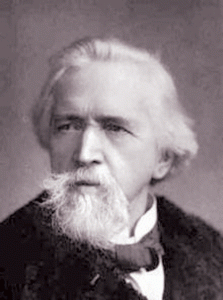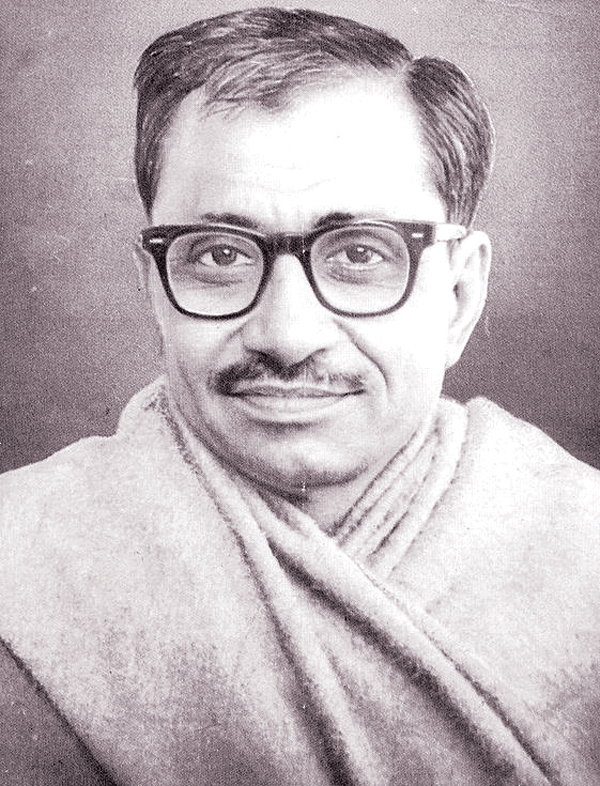Continue from Last Issue…)
D.B. Thengdi
On this point Marx was thoroughly vzorng. Consider, for example, the resurgence of nationalism in all communist countries patriotic uprisingsM Eastern Europe; demand for complete internal autonomy by communist parties of the western Europe; conscious efforts in all countries, including India, to reconcile Marxism with national heritage;between Vietnam and Cambodia, and tussle between USSR and China prompted by the instinct at rational self-interest.
Marxism proclaims the disappearance or the ‘Bourgeois family’. Engels’ expounds in details the Marxist views on the develop. meet of family, which is one of the superstructures erected on the economic base. In an ideal society, the management of the individual household would be turned into a branch of social work. The family will lose all its social functions. It will dm out Being purged of its social content, the family will wither away.
Maoism does not view marriage with favour. Though Marx said,”we shell interfere in the private relations between men and women only insofar as they disrupt our social structure,” what disrupts social structure as to the decided finally by the Communist State only. Academic discussion on this point seems to be superfluous. Even under communist regimes, family has come to may, and “official and open wife sharing instead of hypocritical and concealed wife-sharing„ could not yet acquire any measure of respectability.

Though Marxism ultimately pleads for the Pull development of every individual. it negg. tes, O the immediate context, the individuality of men. it practice, equality is turned into equivalence. Individual citizens are components of the state-apparatus. Individual relations between husbands and wives and between parents and oblivion are to be destroyed. Children need not know that parents, and should be brought up by the state. The individual, family, marriage and the familial rearing of children should not exist.
Such a negation of individuality is bound to result in the destruction of Man. As Igor Shafarevich puts it, the basic problem is really that the establishment of a social order fully emboding the principles of socialism will lead to a complete alteration in man’s relation to life and to a radical break in the structure of human individuality.”
VI. ‘ISM’LESSNESS
The ideology of Deendayal ji as well as of Marx is essentially humanistic. But union tunately, the traditional prejudices of European intelligentsia, coupled with pressing requirements of the immediate and lack of adequate knowledge of the Hindu Darshana, contributed largely to the imbalance and compartmentalisation in Marxian thonghbsystem. Both of them were wise enough not to found any ‘ism’. Deendayalji’s use of the term ‘ism’ was a practical concession to the common man’s level of understanding which could not corn-prechend the grand ‘isni-lessness of Santana Dharma; and Marx is reported to have once remarked, “Thank God! I am not a Marxist.” Both of them were, again, mature enough not to present any elaborate hive. print, though they certainly provided the guidelines. Neither of them offered any precise deuription of the ideal socio¬politico-economic institutions and their mutual relationships.
This is as it should be. A clear-cut blueprint is necessarily evolved by pragmatic system-builders in course of time on the basis of practical len. and continuous appraisal of the situation. The maxim ‘from each according to his ability; to each according to his needs’ is quite consistent with the spirit of Integral Humanism. Both thought-systems consider freedom from want and production or action for the sake of self-fulfilment, as an ideal condition. The final stage of of communism consisting of ‘socialised humanity’ that is “a classless, statelms, and generally a structureless collectivity of complete individuals who live ht harmony with themselves and with each other” is broadly compatible with the ultimate goal of lateral Humanism.
BM Marx was at a disadvantage in that he had no heritage to fall back upon, which would readily offer suitable Mstruments for achieving the end. How to raise complete individual? What precisely would constitute the sustaining force for the ideal society?
VII. THE DESTINATION
The Hindu culture conceives of progress of man as simultaneous progress of the body, mind, intellect and soul. It places before us the ideal of the fourfold responsibilities of catering to the needs of body, mind, intellect and soul with a view to achieving the integrated progress of man. The foe, fold `Purashorrhak i.e., Dharma, Artha, Kama and Moksha, in an integrated way, constitute the ultimate goal of individual life. In this scheme of Purushorolhor, the Artha and the Kama are sandwiched between the Dharma and the Moksha. The material is happily, and irje balanced way, inMgrated with the spiritual. And among these the Dharma is basic, and supreme. It sustains society in its ideal condition. Dharma renders validity and stability to an ideal socio-economic structure and the various institutions functioning within its framework.
Thus, the Hindu heritage furnishes us with the tools of reconstruction at different levels. This is the destination envisaged by Integral Humanism. It would be superfluous to inquire about comparative merit of different thought-systems. Each system is great it its own way. The problem is how to make them mutually complementary. For us, it should not be an insoluble problem. An aptitude for synthesis, as manifested brilliantly by Vyas and Sankara, has been one of the unique features of our national genius.
(The writer was an eminent thinker &
Founder-General Secretary of Bharatiya Mazdoor Sangh)


